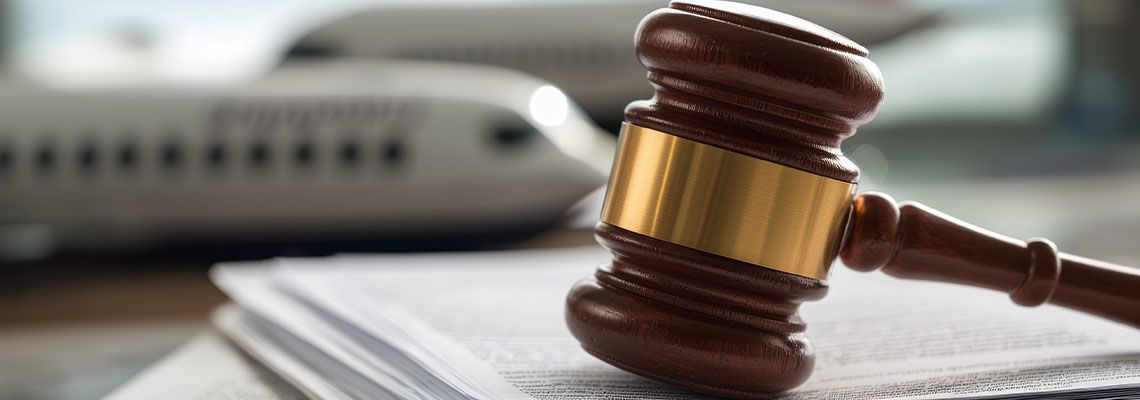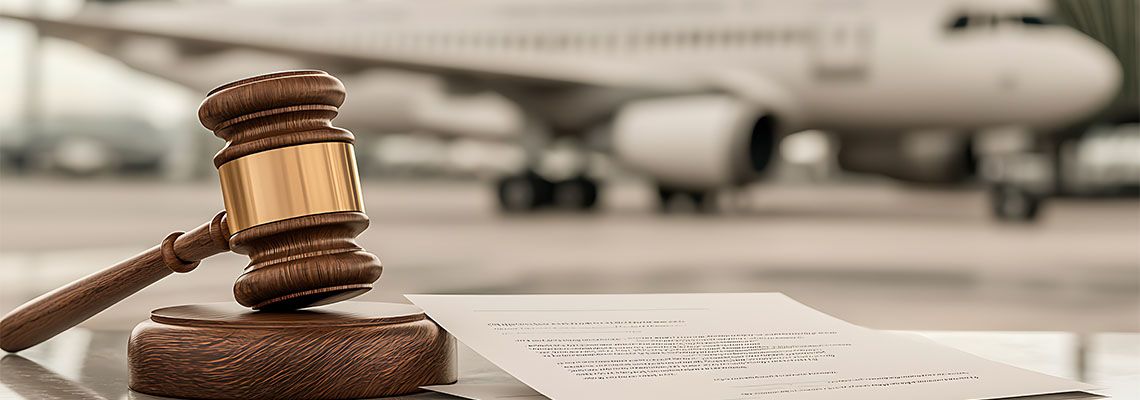Acquiring an aircraft for your business is a monumental step that can revolutionize your operations, improve efficiency, and even offer an edge in a competitive market. However, deciding whether to purchase or lease a plane is no small task.

Understanding the Statute of Limitations in Aviation Injury Claims
When handling aviation injury claims, time is one of the most critical elements to consider. The statute of limitations dictates the time frame within which a claim must be filed to preserve the claimant’s legal rights. Missing this window can mean the difference between a claimant receiving compensation or having their case dismissed entirely.
At William G. Harger & Associates, PLLC, Attorney Bill Harger leverages over 25 years of experience in aviation law, combined with his background as a former pilot, to effectively guide clients through the claims process and protect their legal rights. Located in Richmond, Texas, the firm assists clients throughout the United States, as well as some international clients.
What Is the Statute of Limitations?
The statute of limitations refers to the legally established time period within which a claimant must file a lawsuit arising from a specific legal matter. When it comes to aviation injury claims, the time frame can vary significantly depending on the jurisdiction, the nature of the claim, and the parties involved.
Claims arising from incidents such as private airplane crashes, commercial airline injuries, or helicopter accidents may have differing time frames, depending on whether the case falls under state, federal, or international aviation regulations.
For claimants in Texas, aviation injury cases will typically adhere to the state's statute of limitations for personal injury or wrongful death claims. However, federal laws, such as those outlined in the Montreal Convention for international flights, may dictate alternative deadlines. Working with experienced aviation counsel can be invaluable to help you comply with the correct timeline.
Federal and State Considerations
Aviation claims often intersect with federal law, including regulations established by the National Transportation Safety Board (NTSB) and the Federal Aviation Administration (FAA). The statute of limitations under federal law may differ from state provisions, which can impact cases involving claims against airlines, manufacturers, or federal entities.
For example, the Federal Tort Claims Act (FTCA) has its own set of strict guidelines for claims involving government-owned aircraft or air traffic controllers. Claimants should also consider the importance of preserving evidence early. Preservation letters must often be sent to responsible parties well in advance of the statute of limitations to ensure critical information, such as maintenance logs or flight records, remains available for review.
International Aviation Injury Claims
When an aviation injury claim involves international travel, additional requirements come into play. The Montreal Convention, an international treaty governing airline liability, often limits the statute of limitations for passenger injury or wrongful death claims to two years. These strict parameters leave no room for delay, and filing too late under international rules can result in the permanent loss of legal remedies.
Attorney Bill Harger regularly helps clients with claims falling under the Montreal Convention to make sure cases are filed promptly and correctly. His familiarity with international aviation standards, combined with his experience working with clients from countries such as Switzerland, Australia, and Mexico, enables him to advocate for claimants worldwide effectively.
The Importance of Acting Quickly
Adhering to the statute of limitations is not merely a procedural requirement; it is vitally important for the success of a claim. The evidence required to support aviation injury claims, such as maintenance records, air traffic control logs, or black box data, can be harder to obtain as time passes. Witness recollections may fade, and entities responsible for maintaining crucial records may dispute their accessibility if the claim is delayed.
For potential claimants, it's necessary to seek legal advice as soon as possible after an incident. William G. Harger & Associates, PLLC, offers free consultations to help clients understand their rights, the timelines that apply to their case, and the steps needed to preserve their claims.
Attorney Bill Harger’s insight, gained from his experience as both a seasoned aviation attorney and a former pilot, enables him to provide a comprehensive approach to evaluating legal options.
How William G. Harger & Associates, PLLC Can Help
The unique combination of Attorney Bill Harger’s legal acumen and aviation background makes his firm a powerful ally for claimants. He understands the time-sensitive nature of aviation injury claims, and strives to work diligently to file cases within the applicable statute of limitations. His approach is tailored to meet the specific needs of each case, whether dealing with state law, federal provisions, or international treaties.
From commercial airline injuries to private aviation accidents, William G. Harger & Associates, PLLC, has established a reputation for delivering knowledgeable legal representation to its clients. With offices in Richmond, Texas, a suburb of Houston, the firm is uniquely available to serve clients across the United States and international clients from regions such as Switzerland, Australia, and Mexico.
Potential clients are encouraged to call to schedule a free consultation to discuss their case. With Attorney Bill Harger’s extensive background and commitment to protecting his clients' rights, claimants can feel confident that their legal matters are being handled thoughtfully and effectively.
RECENT POSTS
Corporate aircraft are valuable assets that require meticulous care to operate safely, effectively, and in compliance with regulations. For aircraft owners, operators, and aviation businesses, it's not just about ensuring the aircraft remains airworthy but also about protecting the significant investments tied to these machines.
The aviation industry is a dynamic and complex sector, where businesses often collaborate to share resources, reduce costs, and expand their reach. One of the most effective ways to achieve these goals is through a joint venture. Whether it’s a partnership between airlines to streamline operations or a collaboration between manufacturers to develop cutting-edge aircraft technology, joint ventures play a pivotal role in shaping the industry.



